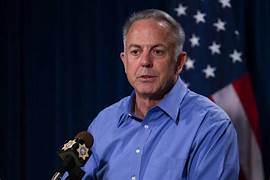Executive Director, Euthanasia Prevention Coalition
 |
| Governor Joe Lombardo |
Nevada Governor Joe Lombardo said that he will veto assisted suicide Bill AB346 and he told the legislature to disregard the assisted suicide bill. Lombardo stated on April 4, 2025 that:
Expansions in palliative care services and continued improvements in advanced pain management make the end-of-life provisions in AB346 unnecessary, and I would encourage you the 2025 Legislature to disregard AB346 because I will not sign it.Based on Lombardo's comment, The Nevada Globe wrote on April 4 that:
However, the ethical and practical ramifications of legalizing physician-assisted suicide cannot be overlooked. Critics contend that such legislation may lead to hasty decisions, undermine the sanctity of life, and pose risks to vulnerable populations, including the elderly and disabled. Furthermore, there is apprehension about the potential erosion of trust in the medical profession, whose primary mandate is to heal and preserve life.
As this debate unfolds, Nevadans are encouraged to reflect on the profound moral, ethical, and societal implications of AB 346. Should the state endorse a practice that fundamentally alters the physician’s role and the value placed on human life? Or should the focus remain on enhancing palliative care and supporting patients through their natural end-of-life journey? The answers to these questions will shape the future of healthcare and the ethical landscape of Nevada.
“End of life decisions are never easy,” Lombardo wrote in his veto message. “Individuals and family members must often come together to face many challenges — including deciding what is the best course of treatment for a loved one.”*Please thank Governor Lombardo for rejecting assisted suicide Bill AB346 through (this link) or call him at: (775) 684-5670 or post a message through X (Twitter) at: @JosephMLombardo
Lombardo said the provisions in the bill “unnecessary” due to expansions and improvements in palliative care services, or care for people living with serious illnesses, and pain management.



















